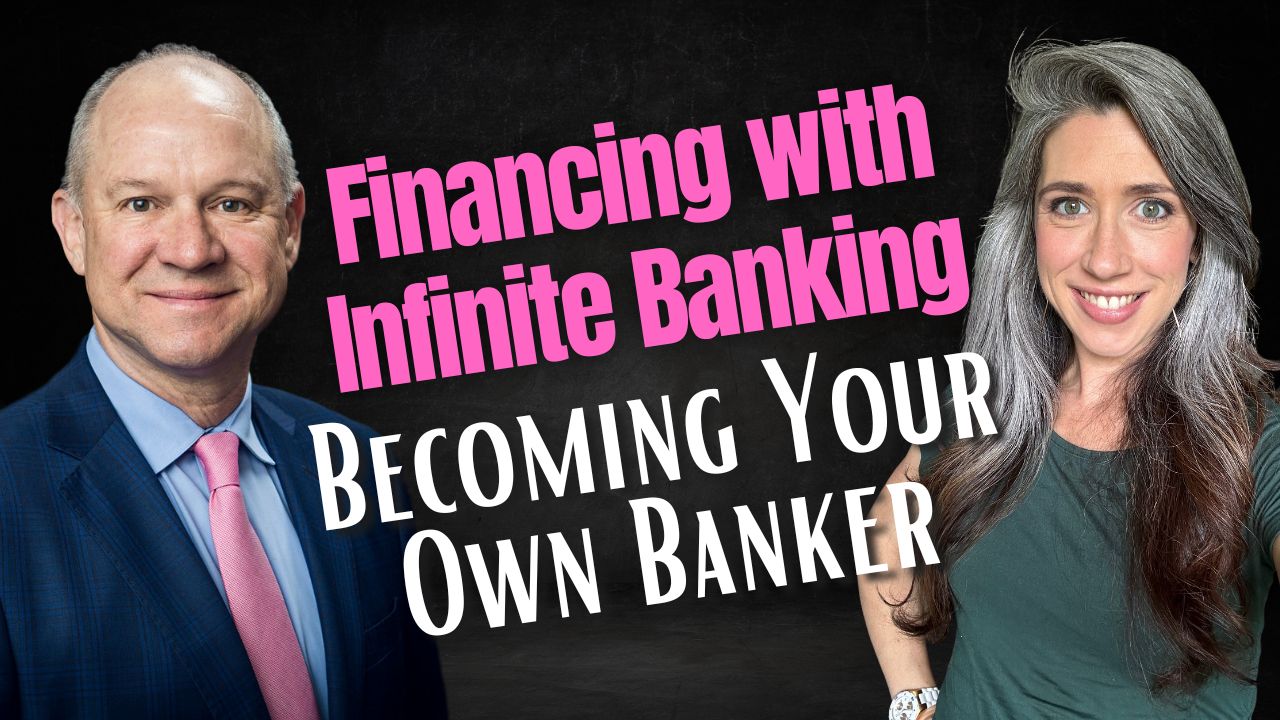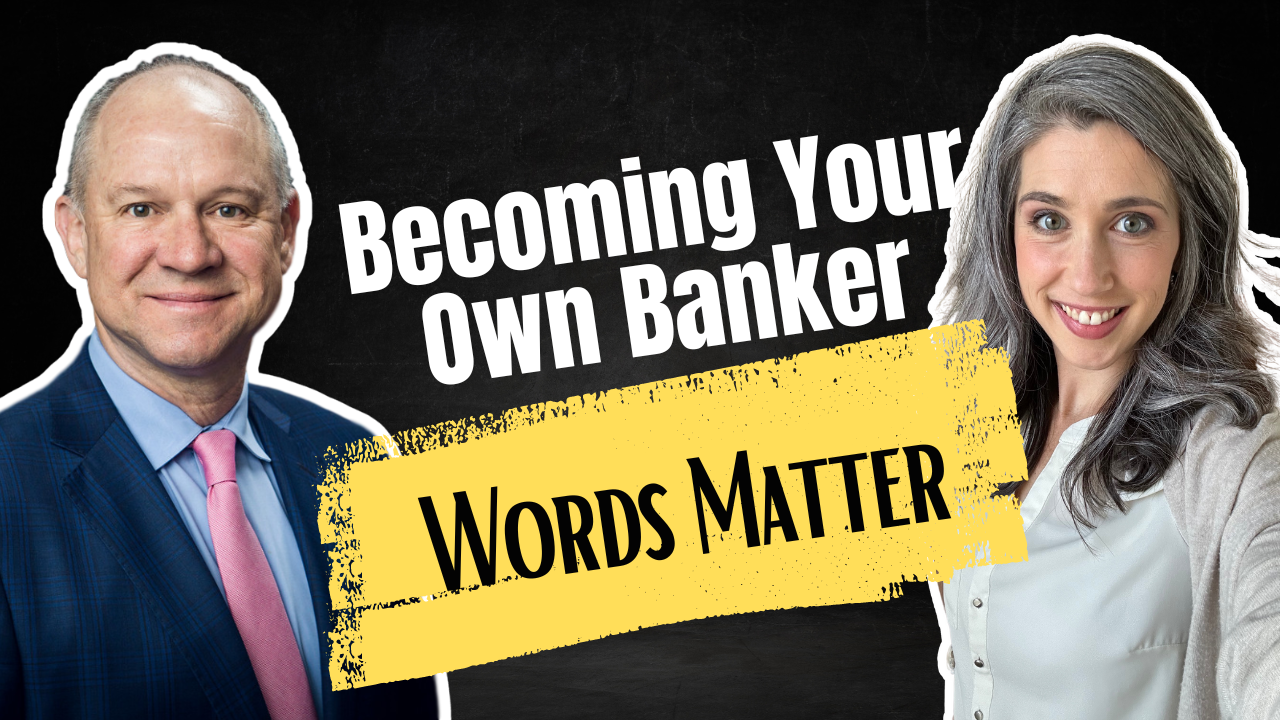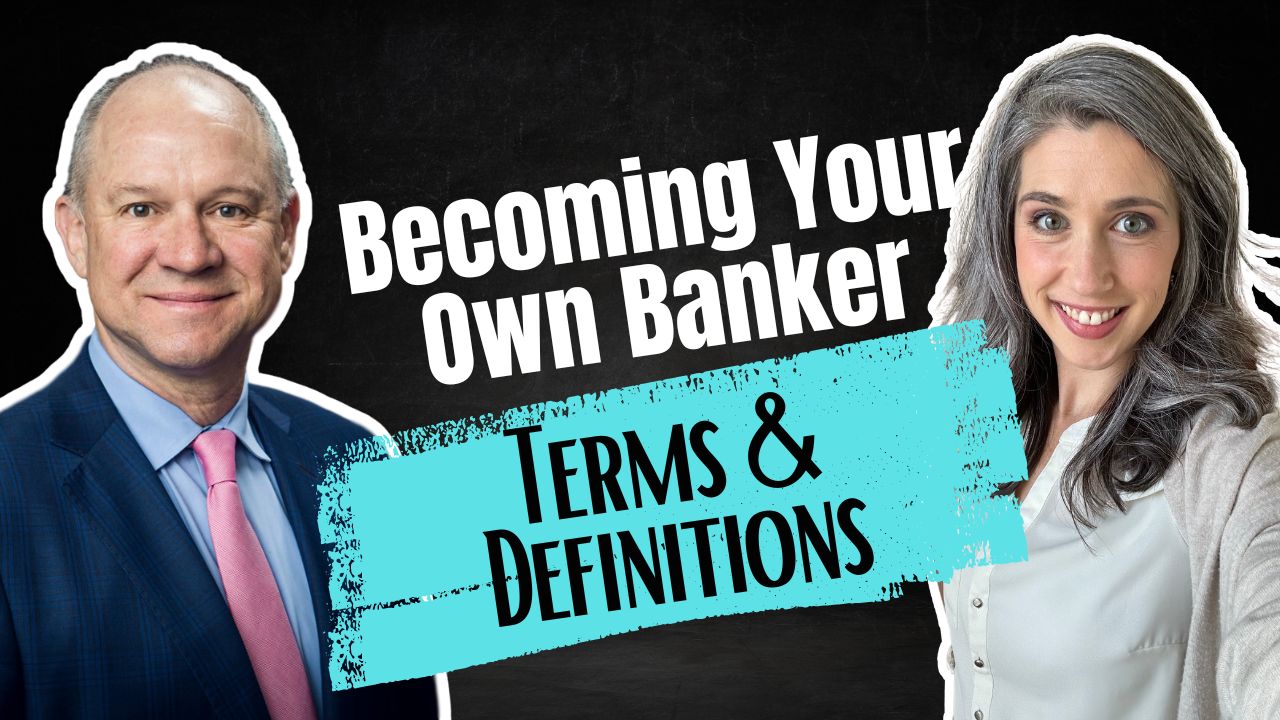
Becoming Your Own Banker, Part 14: Financing with Infinite Banking
Want to see firsthand how financing with Infinite Banking will help you come out ahead?
Get ready for a mind-shift as we journey through the concept of infinite banking, as presented in Nelson Nash’s groundbreaking book, Becoming Your Own Banker. We promise to challenge your conventional thinking about storing capital and show you a more profitable way of managing your money. This episode uncovers the benefits and nuances of this method, contrasting it with five different ways of purchasing items and revealing why the Infinite Banking Concept could be the game changer you need.
The heart of this episode is a detailed examination of infinite banking, where you play multiple roles, from the policyholder to the depositor, customer, and owner. We illuminate the advantages of this system, using the example of financing a car purchase over 44 years. By comparing this with leasing, bank financing, cash, CDs, and whole life insurance, we uncover the superior potential of the infinite banking system. We highlight not just the numbers but a fundamental, more profitable shift in thinking.
Lastly, we delve into the nitty-gritty of capitalizing life insurance policies. This method stands apart from other methods and requires discipline and long-term thinking to see uncommon results. We stress the power of capitalizing and how it can enable you to secure static payments for large ticket items and a robust future. This episode is all about unlocking the incredible potential of thinking like a business and understanding the key players in the game: the policy owner, the life insurance company, the dividends, and the death benefit. Tune in, and let’s change your financial future together.
Join us for this discussion of life insurance, infinite banking, and building wealth!
powerpress]
Table of Contents
Rethink Your Thinking
[05:20] “IBC is a way of life. It’s not something that you’re just going to try.”
In order to execute an infinite banking strategy, you have to be willing to completely rethink your thinking. IBC is about storing capital—that’s something you’re already doing, regardless of your background. Whole life insurance is simply the vessel for storage, and by rethinking what capital storage means to you and what it can do for your life, you’ll be able to create life-changing financial strategies.
IBC isn’t magic. It’s just strategy, and you can benefit from it by being receptive to learning new things and challenging your existing worldview about money.
[07:40] “Remember, this is about the human condition and changing your human condition. That is more important than the numbers.”
Nelson’s Car-Financing Strategy
In this instance, we want you to rethink your thinking about what it means to finance purchases. In this case, we’ll talk about car financing. There are many opinions on how to do it—pay cash, do a short-term loan, etc. In Becoming Your Own Banker, Nelson Nash shares his strategy for financing a car every four years.
The basis for this strategy is, of course, whole life insurance, which provides your pool of capital. The advantage of financing via policy loan is that you can set your own amortization schedule, and you can buy a car without losing the ability to earn interest and dividends on the full amount of your capital pool.
This not only puts you in complete control of your payment circumstances, but it also makes your banking system more efficient.
Why is IBC So Effective for Car Financing?
What makes whole life insurance so efficient? The answer is opportunity cost. Opportunity cost refers to the cost of one financial decision over another. When you pay for something in cash, you lose the ability to invest that cash somewhere else. So not only are you losing the initial capital, but you’re losing all of that growth over the rest of your life.
There’s an opportunity cost to every financial decision. And when you stretch your dollars thin making cash payments or funding multiple pools of capital, you’re actually weakening your assets.
Whole life insurance allows you to capitalize without losing the ability to grow your dollars uninterrupted. So you can finance a car purchase all while your cash value continues to grow on the full value of your dollars because there was no withdrawal. Your loan payments, therefore, aren’t playing catch-up. They’re simply reducing the lien on your account so that you can re-collateralize those dollars again. And the interest you pay contributes to company profits, which trickles down to you in the form of dividends.
By creating one pool of money for all of your financing needs, you’re getting growth without sacrifice. You won’t have to spend years playing catch-up to get your accounts back to “normal,” and you won’t miss out on any growth.
If you compare the IBC method to other methods of financing, as Nelson does in his book, you’ll see that the IBC user comes out with greater assets that can be used in a multitude of ways, including retirement income.
Other Methods of Financing:
- [25:40] Deferred car payments with a savings account
- [45:17] Financing your car with a Certificate of Deposit (CD)
- [55:09] Tax Implications of CD Method
Book A Strategy Call
Do you want to coordinate your finances so that everything works together to improve your life today, accelerate time and money freedom, and leave the greatest legacy? We can help! Book an Introductory Call with our team today https://themoneyadvantage.com/calendar/, and find out how Privatized Banking, alternative investments, or cash flow strategies can help you accomplish your goals better and faster. That being said, if you want to find out more about how Privatized Banking gives you the most safety, liquidity, and growth… plus boosts your investment returns, and guarantees a legacy, go to https://privatizedbankingsecrets.com/freeguide to learn more.
Becoming Your Own Banker, Part 29: Words Matter
Ever felt like financial jargon was designed to confuse rather than clarify? Join us as we navigate the labyrinth of financial terminology, particularly within the infinite banking sphere. It’s not just about learning by rote; it’s about cementing a rock-solid financial strategy based on clear, precise language. By dissecting common misconceptions, we aim to transform…
Read MoreBecoming Your Own Banker, Part 28: Infinite Banking Definitions
Have you ever felt like you’re on a financial hamster wheel, constantly spinning but never gaining traction? Join us as we unpack the epilogue and glossary of Nelson Nash’s “Becoming Your Own Banker.” It’s a journey through the intricate philosophy of IBC, as we cover Infinite Banking definitions that shows how effective money management can…
Read More


